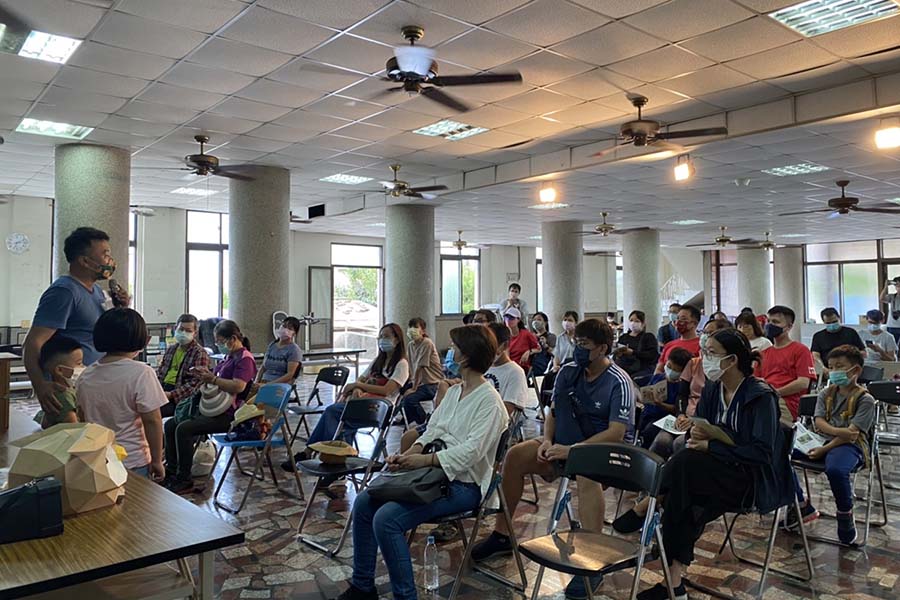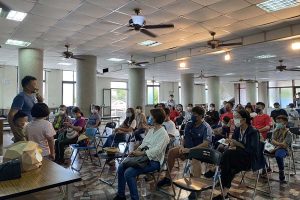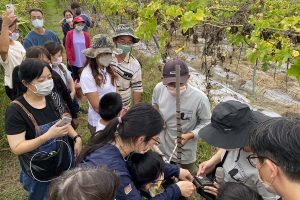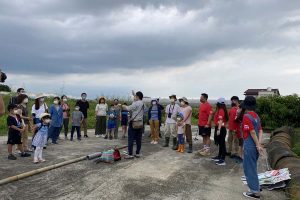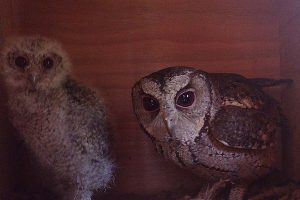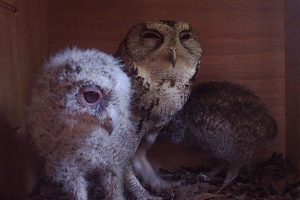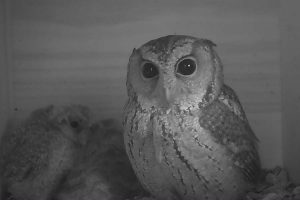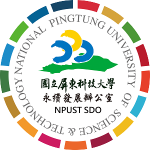At the NPUST Institute of Wildlife Conservation, the Bird Ecology Lab is promoting the use of raptors as a means of integrated pest management (IPM) and helping reduce rat populations in farmers’ fields. On August 16th, an activity was held at Sheng-Hsien Community in Tainan to share information and allow visitors to observe the practice. The event, which was jointly organized by Farglory Life Insurance and National Pingtung University of Science and Technology (NPUST), welcomed local and youth farmers’ associations, Sheng-Hsien Community Development Association, and Geng Pa Farm to come and learn more about pesticide-free farming techniques and promote the ideas to others.
This activity was strongly supported by Wang Ji-Geng (also known as “Papa Geng”) of the Dongshan Branch of the Qingnong Association. Papa Geng cultivates eco-friendly black rice and white rice in the Dongshan District, and cultivates pesticide free dragon fruit and pearl guava by growing herbs that naturally deter pests. Papa Geng believes it is important to reduce dependency on pesticides and encourages all farmers in the Dongshan area to adopt the practices.
Hui-shan Lin, a PhD student of the NPUST Graduate Institute of Bioresources, said: “these habitat observation activities are very popular, so registration filled up right away. In addition to the enthusiastic participation of locals, we see farmers and other interested folks come from afar to learn the method and help promote it. Last year Papa Geng came to participate in the observation activity, and now we are very happy to have the opportunity to have him as a partner.”
A representative of Farglory Life said, “supporting friendly farming and ecological crops is about starting with nature. By using animals to help protect the land, we can make the environment and the public healthier. This is in line with the business philosophy of life insurance companies, and so we hope to see the Protecting Every Owl project keep going.”
In this project, the University Social Responsibility (USR) of NPUST and Corporate Social Responsibility (CSR) of Farglory Life have come together with the common aim of using wild birds of prey as agents of biological control. When the Protecting Every Owl Project was launched, researchers from the Bird Lab began setting up perches and nests in pineapple fields, hoping to reduce reliance on poisons to manage rats in the fields. The project attracted the attention of the public, and with the help from the Pingtung County Government and local supermarkets, the “Owl Pineapples” brand was created. Now many parties are supporting the integration of university and corporate social responsibility and with the public’s attention focused on ecology, hopes are to spread the idea of using biological methods to reduce pesticide use and see more raptor perches pop up around Taiwan— this way, farmers will be able protect their fields and while simultaneously protecting local raptor populations.




